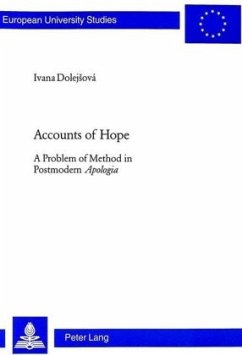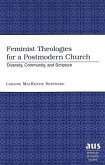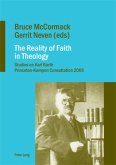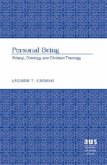This book addresses fundamental questions in systematic theology and philosophy of religion. How can the Christian story remain relevant in a postmodern pluralistic society? How can it draw on its traditional sources without reverting to fundamentalism? How can dialogue be maintained with contemporary culture without recourse to forms of religious reductionism or syncretism?
The author argues against the notion of apologetics, understood as a defence of human beliefs, ideas, attitudes and values which alone can lead to divine truth. With the help of Derrida, Lyotard and Levinas, she looks at where such apologetic tendencies in Christianity come from and how they distort the theological tradition, which has offered a variety of insights into the liberating message of Jesus Christ. The key to this difference lies in the understanding of relations between practice, belief and knowledge. Religious epistemologies since the Enlightenment offer us conflicting positions. The author finds in the epistemology of the late Wittgenstein possibilities for a dialogical discourse which takes practice as the starting point for understanding religious belief and knowledge, and allows for non-fundamentalist "accounts of hope" in Christianity.
The author argues against the notion of apologetics, understood as a defence of human beliefs, ideas, attitudes and values which alone can lead to divine truth. With the help of Derrida, Lyotard and Levinas, she looks at where such apologetic tendencies in Christianity come from and how they distort the theological tradition, which has offered a variety of insights into the liberating message of Jesus Christ. The key to this difference lies in the understanding of relations between practice, belief and knowledge. Religious epistemologies since the Enlightenment offer us conflicting positions. The author finds in the epistemology of the late Wittgenstein possibilities for a dialogical discourse which takes practice as the starting point for understanding religious belief and knowledge, and allows for non-fundamentalist "accounts of hope" in Christianity.
"D. surveys the philosophical terrain in a clear style and addresses the pressing issues of foundations, apologia, epistemology and practice. She writes in the hope of providing a tool for the rediscovery of liberating, exciting, and credible accounts of Christian belief and practice. This book makes a good beginning." (John K. Downey, Theological Studies)




